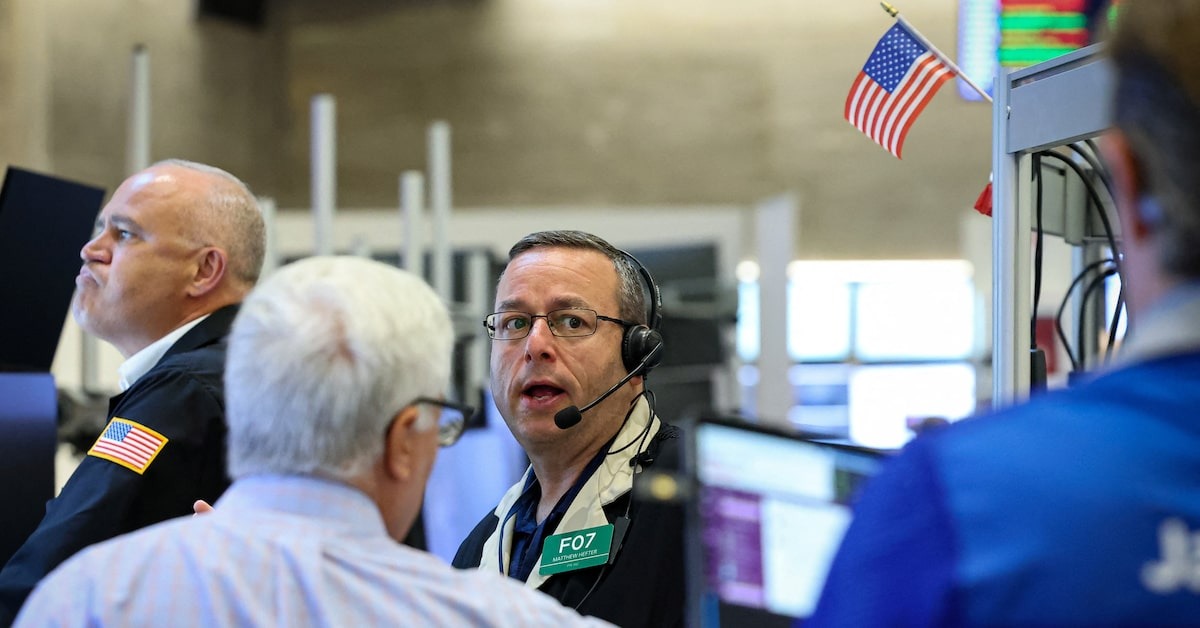The S&P 500 rose 1.1% to close at 6,445 points on 12/8. The Nasdaq Composite gained 1.4%, reaching 21,681 points. Both indexes reached new highs. The DJIA also climbed, closing with a 1.1% increase.
The market rallied after the US Department of Labor reported that the Consumer Price Index (CPI) for July rose 0.2% from the previous month and 2.7% year-over-year. These figures were lower than predicted, prompting US President Donald Trump to renew his calls for the Federal Reserve (Fed) to cut interest rates.
 |
Traders on the floor of the New York Stock Exchange (NYSE) on 12/8. Photo: Reuters |
Traders on the floor of the New York Stock Exchange (NYSE) on 12/8. Photo: Reuters
Investors are now predicting a nearly 90% probability of a further 25 basis point (0.25%) rate cut at the September meeting. "The CPI data is supportive of the market and reinforces the possibility of a Fed policy adjustment next month," said Katherine Bordlemay, director of client portfolio management at Goldman Sachs Asset Management.
Airline stocks surged 8.87% on 12/8, marking their strongest single-day gain in over a month. Bank stocks rose 2.1%.
Technology stocks also performed well. Alphabet increased 1.2% after AI startup Perplexity offered to buy the Chrome web browser for 34.5 billion USD in cash. Intel rose 5.6% after Mr. Trump met with CEO Lip-Bu Tan and described the meeting as "very interesting." Last week, the US President called for Tan to resign due to a "major conflict of interest" stemming from his relationships with Chinese companies.
Investors also welcomed the news that Mr. Trump signed an executive order extending the tariff postponement on Chinese goods until 10/11. This prevents higher tariffs on Chinese goods as US retailers prepare for the crucial year-end shopping season.
US stock markets have repeatedly hit new highs in recent weeks. This is due to easing trade tensions, increased likelihood of a Fed rate cut, and better-than-expected earnings from technology companies. Data from BofA Global Research shows that last week's inflow into US equities was the largest in two years.
However, John Velis, a macro strategist at BNY, cautioned that inflation could still accelerate. "This process is still in its early stages. As the Fed is expected to begin cutting rates in the fall, inflation data could start to register some of the direct impacts of tariff-induced price increases. This will complicate the rate cut decision," he explained.
Ha Thu (Reuters)












